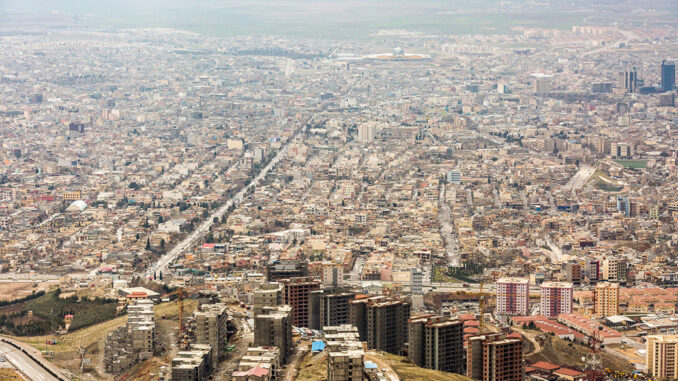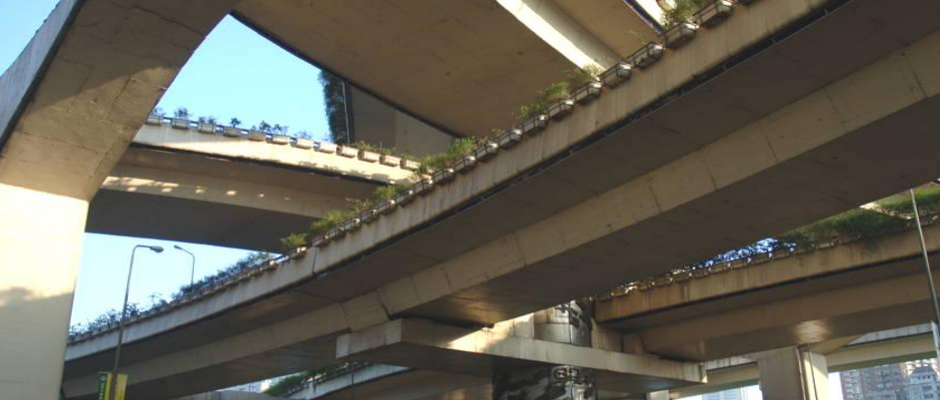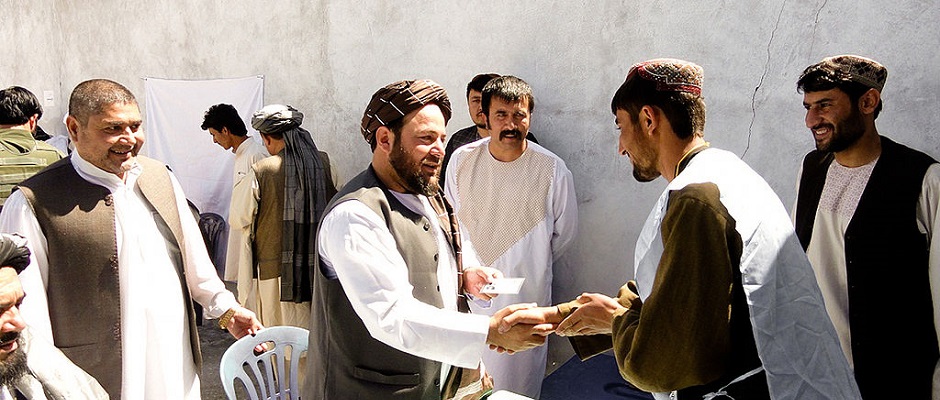
Over the last year Iraq’s economy has been in free fall, leading to a recent decision to devalue its currency, the dinar, by 23 percent. As the country deals with intersecting economic, political and security challenges, a growing chorus is calling for greater control over decision-making at the local level. A critical step in that effort is to ensure that Iraq’s budget is responsive to the needs and priorities of local communities. Absent comprehensive reforms, decentralization efforts on the budget or in other sectors will not address Iraq’s manifold governance woes, but it could be a step in the right direction.
Iraq’s Economic Collapse Tied to Governance
Prime Minister Mustafa Kadhimi’s draft 2021 budget is currently under parliamentary review. It appears that many of the initial plans to reduce government spending were walked back, including deep cuts to the public sector. In 2020, Iraq’s public sector obligations exceeded the state’s enormous oil income, in part due to the dramatic drop in demand due to the COVID pandemic. Federal export revenues nearly halved in comparison to 2019. Iraq’s budget deficit balance is set to be larger than at any time since 2004. The devaluation of the dinar is meant to stretch out government oil revenue as much as possible to tackle the ballooning national deficit.
In light of these economic challenges, experts have rolled out recommendations on how to streamline public financial management, such as highlighting the inefficiencies of Iraq’s paper-based budget to advocating for the prioritization of service provision over sustaining public sector employment. These technocratic plans are needed, but due to festering governance challenges and widespread corruption, such recommendations alone will not address the root causes of the country’s perpetual political economy challenges.
Since 2003, there has been staggered attempts to decentralize certain political, administrative and fiscal authorities from the central government to the provincial and district levels. This reorganization could help address Iraq’s longstanding challenge fostered by decisions made by elites concentrated in central administrative areas instead of local communities and authorities. Policies enshrined in Article 115 of the Iraqi constitution, and later defined by Law No. 21 (2008), intended to transfer security, administrative and financial affairs from Iraq’s federal government to its provincial authorities. But the results were mostly negative due to poor sequencing, implementation and capacity constraints.
Still, some progress had been made in devolving central power. For example, Iraq’s provincial governments can now directly grant investment licenses for deals up to $250 million and can directly request the central government to consider and fund specific investment projects. However, more significant reforms are needed if Iraqi lawmakers are to be more accountable to their communities and their dwindling coffers.
In October 2019, Iraq’s decentralization drive was paused as the Council of Representatives suspended provincial and district councils in response to the Tishreen protest movement.
Gauging Perceptions on Local-Level Authority in Nineveh
As Iraq considers how to tackle its governance woes, a USIP project in Nineveh province asked citizens about their views on local administration and decentralization. The Conflict Stabilization Monitoring Framework (CSMF) completed its fourth wave of data collection in November 2020. Since 2018, the CSMF has tracked inter- and intra-group dynamics in various districts in Nineveh, looking at grassroots perspectives on conflict and stabilization dynamics, including on community participation in developing local budget priorities.
Across over 2,000 respondents in Sinjar, Tal Afar and Hamdaniya districts of Nineveh, there is low to little perception that community input is sought by local authorities to inform the annual budget. The vast majority of respondents (73%) indicate that communities provide little to no input in informing the priorities of the local subdistrict administration, and 78 percent believe they have little to no influence on what the the budget is spent on. Moreover, there is reportedly little to no awareness of how the budget is allocated, as cited by 85 percent of respondents.
This gap may be more acute within these districts, given that Nineveh provincial government did not participate in the budget allocation process from 2014-2018 due to the conflict with the Islamic State group (ISIS). The fallout from ISIS and the ensuing campaign to defeat them led to widescale destruction across these districts, with reconstruction needs still dire today.
Decentralization, in principle, does have some appeal to communities in Tal Afar, Sinjar and Hamdaniya. A plurality of district respondents from all three districts believe that further decentralization would enable the local governments to better respond to their needs, with 41 percent of respondents believing that if more decisions on budgeting and administration were taken at the provincial level, that it would make a positive difference. Only 11 percent believed this change would have a negative effect and 35 percent believed it would make no difference. Along the same lines, 45 percent of residents were in favor of their district authorities being empowered with additional administrative and budgetary responsibilities.
As a reaction to Iraq’s failed attempts to develop truly inclusive governance, there has been increased desire to create more homogenous administrative boundaries based on ethnoreligious identity to address the lingering administrative and budgetary challenges mentioned above. Manifestations of this sentiment have been proposed by politicians and activists in recent years, including elevating Sinjar and Tal Afar districts to the status of independent governorates. CSMF data highlights that 67 percent of Sinjaris and 52 percent of Tal Afaris have little to no confidence that the Nineveh provincial government is working for the best interest of all the residents in the province. Elsewhere, the Mosul District Council held a vote — that failed to pass — in the summer of 2019 to elevate the administrative status of Baashiqa from a subdistrict to a district. There have even been calls to create a Sunni region and a Basra region akin to the Kurdistan region.
No district was more supportive of decentralization at the local level than Hamdaniya, found east of Mosul and home to Chaldean-Syriac-Assyrian Christians, Shabaks and other minorities. The vast majority of residents (71%) believe greater authority at the district level would yield positive dividends. The overwhelming majority of Hamdaniya’s Shabak residents (85%) seek distributing greater authority to their local administrations. It is not surprising then that this same community, who live in more rural parts of Hamdaniya and have experienced a population boom over the past decade, only had 3 percent stating wide-ranging satisfaction in the delivery of public services. In contrast, nearly half of the Christians (46%), who live in more urban areas in Hamdaniya said their basic service needs were completely met. The Shabak community may thus see significant benefit in the creation of new districts and subdistricts.
This data demonstrates that decentralization is a key component of the larger debate about Iraq’s political economy and the differing perspectives Iraqis have on local-level authority.
Decentralization: One Piece of a Complex Puzzle
The discussion over decentralization and redistricting reflect common desires for greater representation in decision-making and participation in tailoring local budgets. Communities supportive of decentralization may see this effort as enabling better service provision and resource allocation in their areas, as well as contributing to long-term stability. This could minimize short-term conflict between adversarial communities who currently compete over access to resources and public jobs.
Redistricting along homogenous communal lines is controversial and assumes that overall governance and the delivery services will improve, which is far from guaranteed. But, the CSMF data shows there is a desire among some communities to have more ownership and control over the governing priorities of local authorities. Although drawing new administrative boundaries will consume limited government revenue in the short term, it may help ensure local authorities are better enabled to help their economies grow over the long term.
Decentralization is not a panacea for Iraq’s governance woes — and it has far from universal support among Iraqis. Armed groups continue to have an outsized role in decision-making processes. Political parties continue to mete out jobs and other spoils to their patrons, deepening the national deficit and hindering local development. If left unaddressed, ongoing corruption and limited capacity in peripheral areas will stymie any hopes local communities have that greater autonomy will yield greater benefits. The risk remains of further bureaucratic blockages and tension if clearer lines between federal, provincial and local authorities are not established. For example, in the annual budget process, overlap and silos remain between the responsibilities of the Ministry of Finance and the Ministry of Planning, undermining the entire process. Such confusion could worsen if decentralization happens absent other reforms.
Participatory Budgeting
New CSMF data highlights the need to involve citizens to solve smaller problems at the local level. In response, local governments should seek to create platforms for community engagement, starting in the annual budget process. These can include developing the capacity of local officials on the annual budget submission process and reactivating the provincial planning and development councils, which previously worked to coordinate with communities and streamline the budget process. Such changes would leverage local knowledge and diverse voices in draft budget priorities.
On the district and subdistrict level, USIP has been working with the Alliance of Iraqi Minorities and community-led participatory budget committees inside Nineveh to engage citizens in the budget decision-making process. This initiative signals a pivot to a more locally led, post-conflict recovery that promotes community agency to better target service provision and stretch out the budget. This effort, alongside other aforementioned ideas, may alleviate some of the factors that have shattered Iraq’s social contract, bringing elites and citizens together to foster a participatory environment and address sociopolitical crises Iraq faces today and beyond.
This article is written by Joshua Levkowitz and Yousif Kalian and was originally published by the United States Institute of Peace.





